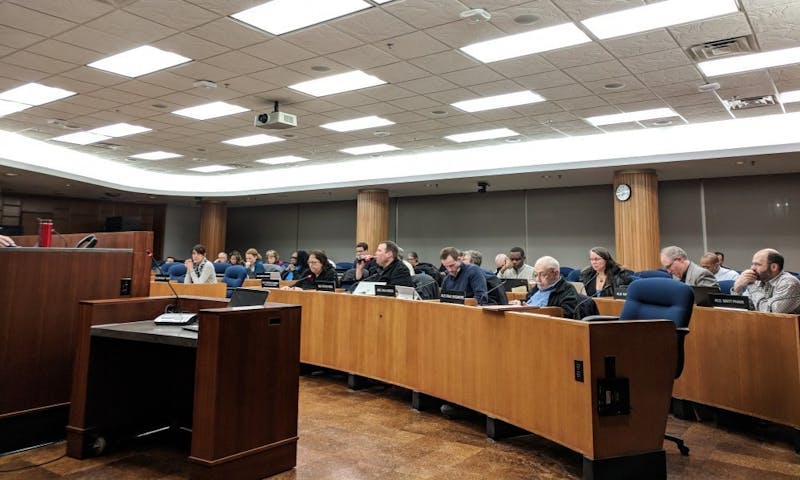

Political representation is an important issue in American politics, and how folks are able to access that power is hindered by a gatekeeping system that prevents many people from running for office. The financial burden to run for office in this country prevents adequate representation and agency for impoverished and marginalized communities.
The issue has two prongs having to deal with not only the economic burden that a political campaign presents, but also a cultural stigma that people hold, further blocking equal political representation.
The amount of money that candidates have to raise in order to fund their campaign is a huge burden on candidates. On a local level, campaigns can cost upwards of $10,000. This cost is almost nothing compared to presidential campaigns, however, when considering that only about 5 to 10% of American’s donate to political campaigns, with even fewer contributing to local elections, many local campaigns require a candidate to contribute lump sums of money to their own campaigns.
In the 2020 election cycle, over $5 billion was spent on the presidential race, with money coming from a wide range of special interest groups and individual donors vying to buy political power from candidates.
When the campaign fundraising cycle blocks out folks who are unable to afford the financial burden of running for office, the voices of impoverished communities are excluded from the public sphere. This occurs at a time when these groups, perhaps, need their voices to be the loudest.
The system favors people who come from wealthy backgrounds, and while they may try to represent people from disadvantaged communities, there will always be some degree of disconnect.
Once a candidate has been elected, the financial issues don’t just stop there. Holding political office at any level requires a serious time commitment, and many people are unable to both have a day job and take time to serve their constituents.
We often deem it as selfish for politicians to vote to give themselves pay raises, or to even consider paying office-holders.
In Madison, a proposition has been debated recently that would make the city alder positions a full-time job, increasing pay to an amount closer to the Dane County mean income. This would make it easier for people from impoverished communities to hold office and perform the duties of a public servant with a steady source of income.
If politicians are not paid, or not paid very much, only people who can afford to not have a job are able to hold the position. People from wealthy backgrounds can afford to not have an income source for the duration of their term since they have money saved up, however people who don’t have excess funds struggle to do so.
We also face a cultural barrier when it comes to running for office. Often, campaign rhetoric focuses on the economic successes of a person as a means of qualification for their position. Yes, of course being successful is a good characteristic to have, but in politics that success is often correlated to monetary success.
Donald Trump is a beaming example of somebody whose sole qualifier was his perceived economic success — he even went so far as to claim that “strength” would correspond to economic success for the U.S. economy.
Trump was indeed a successful business man — simply, he made a lot of money for himself. His success may not have been possible without a large startup loan and inheritance. Regardless, that in no way solely qualifies a person to hold any political office, especially when that economic success comes through the exploitation of the working class.
Culturally, we need to redefine what it means to be successful. I want a candidate who works every day to connect with their constituents, and understand the issues that affect those people. Going even further, I want a candidate who has themselves experienced policies which actively work against them. I want a candidate that will know how to navigate those issues without needing to have a two minute conversation at a campaign rally to fully understand how to help working class Americans.
Would-be candidates all across the country are too often stopped from seeking political office simply because of the financial burden that they face. We need to work to get political representation in this country to the folks that need it most, so that we can create a better America for everybody.
Riley is an Opinion Desk Editor and Junior studying Computer Science & Journalism tracking in Reporting. Do you think there are barriers to running for political office? Do you think we should strive for more representation from impoverished communities? Send all comments to opinion@dailycardinal.com.